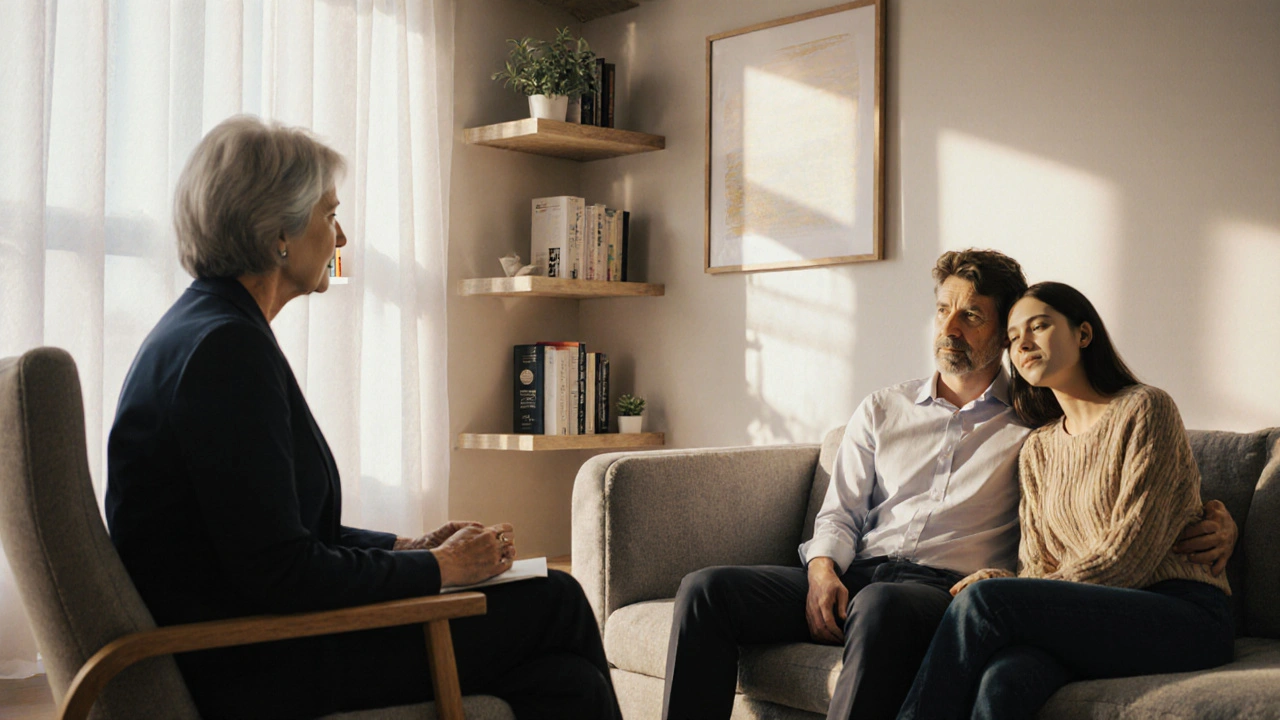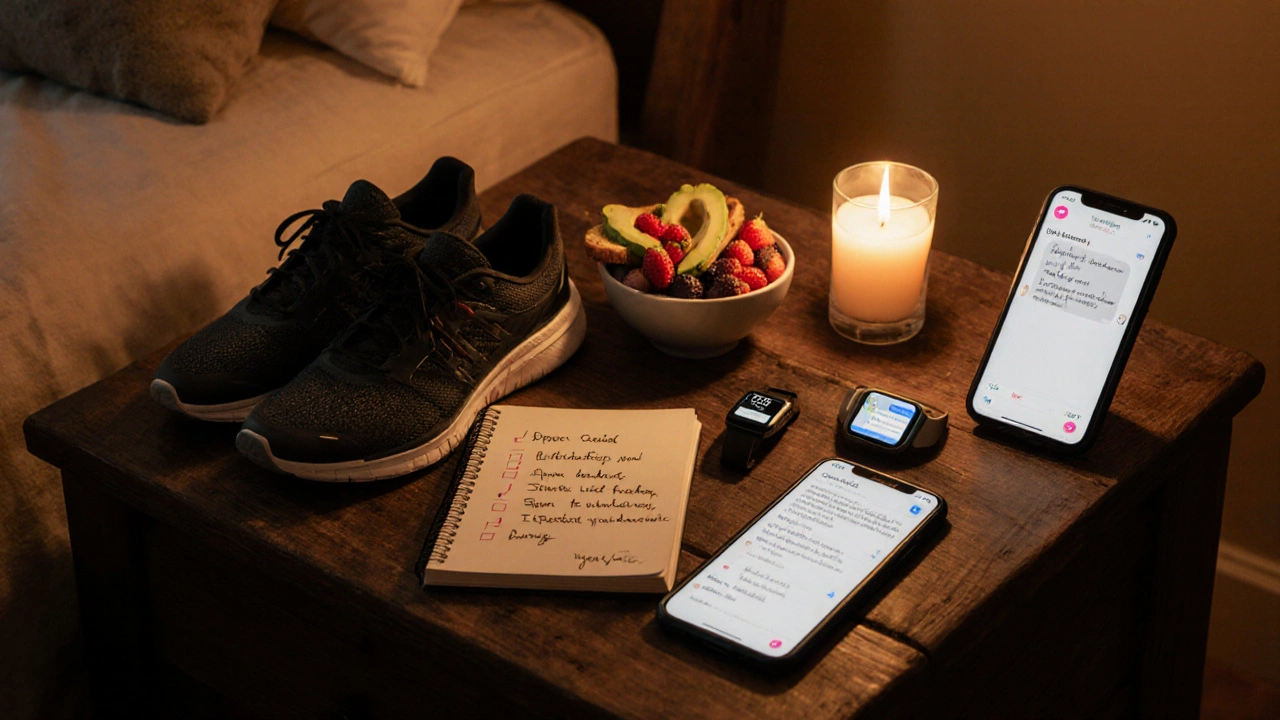Low libido is a persistent decrease in sexual desire that can affect dating, intimacy, and overall relationship satisfaction. If you’ve ever felt uncertain about how to bring this up on a first date or worry it will derail a long‑term partnership, you’re not alone. Millions of adults report a dip in desire at some point, yet few resources blend medical insight with real‑world dating advice. This guide walks you through understanding the cause, talking to a partner, and applying proven strategies so low libido becomes a manageable factor, not a relationship‑breaker.
Understanding the Roots of Low Libido
Before you can navigate romance, you need a clear picture of why desire might be low. The following Sexual desire is a psychological and physiological drive toward sexual activity is shaped by a web of influences:
- Hormonal imbalance is a fluctuation in hormones such as testosterone, estrogen, or thyroid hormones that directly modulates libido.
- Medication side effects are a common cause of reduced desire, especially from antidepressants, blood pressure drugs, and hormonal contraceptives.
- Mental health stress is a psychological factor where anxiety, depression, or chronic stress suppress sexual arousal.
- Lifestyle habits - excessive alcohol, smoking, poor sleep, and sedentary routines - can all lower the body’s natural arousal signals.
- Relationship dynamics - unresolved conflict, lack of emotional safety, or mismatched expectations - often dampen desire more than any physical cause.
Identifying the dominant factor in your situation is the first step toward an effective plan.
Self‑Assessment: When to Seek Professional Help
Take a moment to answer these quick questions:
- Has the decrease in desire persisted for more than three months?
- Do you feel distress, anxiety, or relationship tension because of it?
- Are you on any medication known to affect sexual function?
- Do you notice other symptoms (fatigue, mood swings, weight changes) that suggest a hormonal issue?
If you answered “yes” to two or more, consider a professional evaluation. A primary care physician can run a basic hormone panel, while a Sex therapist is a licensed professional who uses psychosexual techniques to address desire issues. In many cases, a collaborative approach-medical assessment plus psychosexual counseling-yields the best outcomes.
Talking About Low Libido With Your Partner
Open, non‑judgmental communication is the bridge between a personal challenge and a shared solution. Here’s a practical script you can adapt:
“I’ve noticed my sexual desire isn’t where I’d like it to be, and it’s something I’m working on. I’d love your support and ideas on how we can stay intimate while I sort this out.”
Key tips for the conversation:
- Pick a calm moment-not right before or after sex.
- Use “I” statements to own your experience.
- Invite your partner’s feelings and suggestions.
- Reassure that low libido isn’t a reflection of attraction.
Remember, Relationship communication is a skill set that includes active listening, empathy, and clear expression of needs. Practicing it can actually increase intimacy, even when sexual activity is limited.
Therapeutic Options: Finding the Right Fit
There are three main therapeutic pathways that address low libido directly. Use the table below to compare.
| Therapy Type | Primary Focus | Typical Duration | Effectiveness (studies) |
|---|---|---|---|
| Cognitive‑behavioral therapy (CBT) | Changing negative thoughts around sex | 12‑16 weekly sessions | ≈ 65% report increased desire |
| Sex therapy | Techniques for arousal and body awareness | 8‑12 sessions, often with partner | ≈ 70% report improved satisfaction |
| Couples counseling | Improving relational trust and communication | Varies; typically 10‑20 sessions | ≈ 55% see both desire and emotional closeness rise |
Choosing a path depends on what’s driving your low desire. If negative self‑talk is the main barrier, CBT may be best. If the issue feels more physical or sensory, sex therapy shines. When relationship tension is the kicker, couples counseling often unlocks both desire and connection.

Lifestyle Hacks That Boost Desire
Even without professional help, everyday adjustments can make a noticeable difference. Below are evidence‑backed actions, each linked to a specific entity:
- Exercise is a natural libido enhancer that raises testosterone and endorphins. Aim for 150 minutes of moderate cardio plus two strength sessions per week.
- Sleep hygiene is a critical factor; 7‑9 hours reduces cortisol, allowing desire hormones to function. Keep a consistent bedtime, limit screens, and create a dark environment.
- Mind‑body practices such as meditation or yoga improve stress tolerance, which directly feeds into sexual desire. Even ten minutes a day can lower the stress hormone cortisol by up to 15%.
- Nutrition is a modifier of hormone production; foods rich in zinc, omega‑3s, and vitamin D support testosterone. Include oysters, fatty fish, pumpkin seeds, and fortified dairy.
- Limit alcohol to two drinks a week; heavy drinking blocks dopamine pathways and can blunt arousal.
These tweaks are not magic pills, but together they create a physiological environment where desire can re‑emerge.
Redefining Intimacy Beyond Sex
When sexual frequency drops, couples often feel a void. Expanding the definition of intimacy helps fill that space.
- Physical closeness: Cuddling, holding hands, or sharing a warm shower releases oxytocin, the “bonding hormone”.
- Emotional sharing: Regularly discuss hopes, fears, and day‑to‑day moments. Vulnerability builds trust, which in turn can reignite desire.
- Shared activities: Cooking together, taking a dance class, or hiking creates new memories that translate into a sense of partnership.
- Erotic play without intercourse: Light massage, reading erotic fiction together, or using sensual toys can keep the sexual energy alive without pressure to perform.
When both partners view intimacy as a spectrum, low libido becomes a temporary dip rather than a relationship‑ending crisis.
Quick Checklist for Everyday Use
- Identify the main cause (hormone, medication, stress, relationship).
- Schedule a medical check‑up if symptoms persist >3 months.
- Plan a calm conversation with your partner using “I” statements.
- Pick a therapeutic route that matches your primary barrier.
- Incorporate at least three lifestyle habits from the list above.
- Schedule weekly non‑sexual intimacy activities.
- Review progress every month and adjust as needed.
Follow this roadmap, and you’ll likely see both your confidence and your connection improve.
Next Steps and Further Reading
Beyond this article, you might explore deeper topics such as:
- "Hormone Testing for Men and Women" - a medical‑focused deep dive.
- "The Science of Oxytocin and Relationship Bonding" - neuro‑biology of closeness.
- "Mindful Dating: How to Stay Present When Desire Is Low" - practical mindfulness tools for new relationships.
Each of these sits in the broader Health and Wellness knowledge cluster, while this piece lives in the narrower Intimacy Strategies sub‑cluster. Dive into them when you feel ready to expand your toolkit.

Frequently Asked Questions
Can low libido be a sign of a serious medical condition?
Yes. Persistent low desire can indicate hormonal disorders (like low testosterone or hypothyroidism), chronic illnesses (diabetes, cardiovascular disease), or side‑effects from medications. If the issue lasts more than three months or comes with other symptoms (fatigue, mood swings, weight change), a medical evaluation is advisable.
Should I tell a new date about my low libido right away?
Timing matters. Early disclosure can be honest, but it’s usually best to wait until you’ve established rapport. When you do share, keep it brief, use “I” statements, and focus on the positive steps you’re taking. This builds trust without making the conversation feel like a medical report.
Do over‑the‑counter supplements work for low libido?
Evidence is mixed. Supplements containing L‑arginine, maca root, or zinc may help modestly if you’re deficient, but they’re not a substitute for addressing underlying causes. Always check with a healthcare professional before starting any supplement, especially if you’re on prescription meds.
How can I keep my partner engaged when sex isn’t frequent?
Shift focus to other intimacy forms: daily hugs, shared hobbies, and sensual activities like massage. Celebrate non‑sexual milestones and keep communication open about desires and boundaries. This maintains emotional closeness and often creates a relaxed environment where desire can naturally rise.
Is therapy covered by insurance for low libido?
Coverage varies. Many health plans cover sessions with a licensed psychologist or psychiatrist, especially if a medical cause is documented. Sex therapy and couples counseling may be reimbursable under mental‑health benefits. Call your insurer to confirm the CPT codes they accept.
Can stress‑management alone restore my desire?
Stress is a major libido suppressor. Reducing chronic stress through mindfulness, exercise, and adequate sleep often improves desire, especially when stress is the primary trigger. However, if hormonal or medication factors are also present, additional interventions may be needed.


jeff lamore
September 27, 2025 AT 01:50Thank you for putting together such a thorough guide. I appreciate the balanced mix of medical facts and practical dating advice. The checklist at the end is especially useful for someone trying to track progress. Your tone feels respectful and avoids any judgment, which is important for readers feeling vulnerable. I’ll definitely share this with a friend who’s dealing with similar issues.
Kris cree9
October 4, 2025 AT 00:30Yo, yall need to stop pretendin u got no problem and just keep hiding it, you’re lyin to urself and ur partner.
Paula Hines
October 10, 2025 AT 23:10When one contemplates the intricate tapestry of human desire one must first acknowledge the profound influence of cultural narratives that have, for centuries, delineated the parameters of masculinity and femininity within the United States of America. It is evident that the societal pressure to conform to a hyper‑sexualized archetype often exacerbates personal anxieties surrounding libido. The historical lineage of medical discourse has, regrettably, pathologized deviation from a narrow norm, thereby stigmatizing those who experience natural fluctuations in desire. Moreover, the intersection of patriotism and personal wellbeing should not be dismissed as peripheral; indeed, fostering a nation that supports holistic health contributes to the collective vigor of its citizens. Acknowledging that our constitutional commitment to liberty includes the right to bodily autonomy reinforces the necessity of open dialogue. The modern therapeutic landscape offers a spectrum of modalities, each rooted in empirical evidence yet adaptable to individual experience. It is essential to recognize that the resurgence of interest in mind‑body practices aligns with America’s broader embrace of integrative health. Furthermore, policy reforms that expand insurance coverage for sexual health services reflect a societal shift toward inclusivity. By integrating lifestyle modifications such as physical activity, regulated sleep patterns, and balanced nutrition, one can cultivate an internal environment conducive to desire. The role of community support cannot be overstated; peer groups and educational platforms empower individuals to navigate personal challenges without shame. In sum, the convergence of scientific insight, cultural awareness, and personal agency forms the cornerstone of a resilient approach to low libido within the American context.
John Babko
October 17, 2025 AT 21:50Wow, Paula, what a comprehensive take!; you really covered the historical angles, the medical perspectives, and the cultural context-impressive, indeed; I especially liked how you tied national identity to personal health, that’s a bold connection; clearly, you’ve done your homework, and the layered arguments make a strong case for holistic treatment; keep it up, and maybe consider adding a bit more on practical day‑to‑day steps, just to round it out!
Stacy McAlpine
October 24, 2025 AT 20:30I love how this post breaks everything down into easy steps. It’s simple, clear, and you can actually use it right away. The advice about talking with your partner feels real and not “fluff”. Also, the lifestyle tips are something anyone can try without spending a lot of money. Keep sharing more like this, it helps a lot of people.
Roger Perez
October 31, 2025 AT 18:10Glad you found it helpful, Stacy! 😊 It’s amazing how a few small changes can make a big difference, right? 🌟 If you ever want to dive deeper into the mind‑body connection, I’ve got some articles I can share. Keep the positive vibe going! 🚀
michael santoso
November 7, 2025 AT 16:50The article presents a fairly balanced overview, though it leans toward prescriptive solutions without sufficient critique of the underlying assumptions. One might question whether the emphasis on “quick hacks” overshadows the complexity of hormonal dysregulation. Nonetheless, the inclusion of medical pathways is commendable, albeit presented in a somewhat generic fashion.
M2lifestyle Prem nagar
November 14, 2025 AT 15:30Great points, Michael. Stay focused, take one habit at a time, and you’ll see steady improvement.
Karen Ballard
November 21, 2025 AT 14:10This guide is spot‑on! 👍 The step‑by‑step format makes it easy to follow, and the tone is supportive. I especially like the reminder to keep communication open with your partner. Well done! 😊
Gina Lola
November 28, 2025 AT 12:50Totally vibing with this-love the focus on non‑sexual intimacy metrics. It’s a solid KPI for relationship health, especially when the sexual throughput dips.